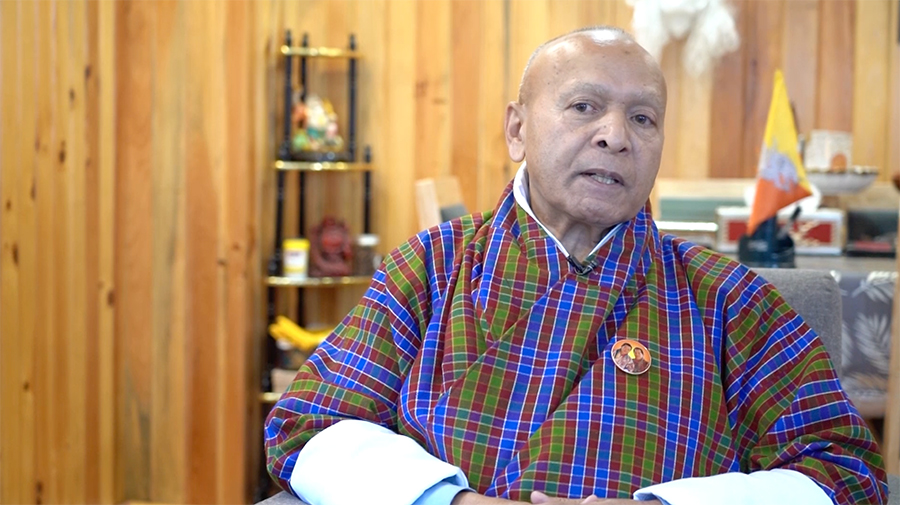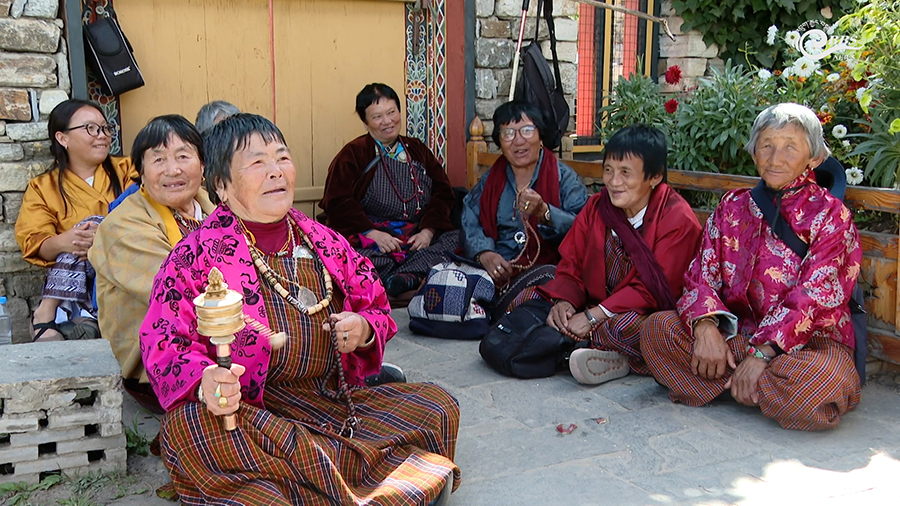 In a world chasing growth through numbers, Bhutan chose to measure something far deeper: happiness. As the nation celebrates the 70th Birth Anniversary of His Majesty the Fourth Druk Gyalpo this year, we look back at the visionary who taught the world that true progress begins within. We also explore how His Majesty’s philosophy of Gross National Happiness continues to shape Bhutan’s way of life more than five decades later.
In a world chasing growth through numbers, Bhutan chose to measure something far deeper: happiness. As the nation celebrates the 70th Birth Anniversary of His Majesty the Fourth Druk Gyalpo this year, we look back at the visionary who taught the world that true progress begins within. We also explore how His Majesty’s philosophy of Gross National Happiness continues to shape Bhutan’s way of life more than five decades later.
 From the streets of Thimphu, where smiles bridge generations, to conversations overseas, Bhutan continues to inspire the world, often summed up in three simple letters: GNH – Gross National Happiness.
From the streets of Thimphu, where smiles bridge generations, to conversations overseas, Bhutan continues to inspire the world, often summed up in three simple letters: GNH – Gross National Happiness.
“I really think it was a great decision by His Majesty the Fourth Druk Gyalpo to introduce Gross National Happiness. Because of GNH, our country is not only happy but also thriving. Our economic growth may not match other nations, but it is sustainable for future generations, including ours,” said Namkha Karma Phuntshok, a student of Changzamtog MSS in Thimphu.
Norgyel Rabgay, another student of Changzamtog MSS said, “One thing I really value is community vitality. In Bhutan, even our neighbours are like close friends. When I lived abroad, that sense of connection was missing.”
Tristan Cotton, a tourist said, “Everyone we’ve met has been so kind and welcoming. The idea of Gross National Happiness isn’t just a slogan — it’s something you can actually feel.”
“People in Bhutan seem genuinely happy. The warmth we’ve experienced here has made us happy too,” said Tamara Cotton, another tourist.
Choneyla, a resident of Thimphu said, “It is thanks to His Majesty the Fourth Druk Gyalpo for introducing Gross National Happiness and making this country a happy and peaceful place to live in.”
“Happiness.” “Peace.” “The happiest country in the world.” And “Gross National Happiness.” These are the words that many associate with Bhutan.
The holistic philosophy of Gross National Happiness, which embodies the nation’s vision for collective well-being, was inspired by His Majesty the Fourth Druk Gyalpo in the early 1970s.
His Majesty declared to the world that ‘Gross National Happiness is more important than Gross Domestic Product’.
 Former Education Minister Thakur S Powdyel said, “As young as His Majesty was when he articulated this development vision of Gross National Happiness, he knew that it was in fact an articulation of the deepest yearning of all human beings across time and space.”
Former Education Minister Thakur S Powdyel said, “As young as His Majesty was when he articulated this development vision of Gross National Happiness, he knew that it was in fact an articulation of the deepest yearning of all human beings across time and space.”
Five decades on, the philosophy continues to guide the nation’s balanced development plans and strategies.
The four pillars of Gross National Happiness: sustainable and equitable socio-economic development, environmental conservation, cultural preservation and promotion, and good governance, form the framework for policies.
Recognised as the North Star of national policy, the philosophy is enshrined in the Constitution, making it a shared responsibility of both the state and citizens to ensure that economic growth never undermines social, ecological, or spiritual well-being.
“So, all our projects are actually vetted against the principles of gross national happiness. Over time, there may have been a lesser or greater degree of emphasis, but at the heart of all our development plans, development programs of the ministries and the departments, including that of the private sector, are informed by and supported by the ideas of gross national happiness,” said Thakur S Powdyel.
The philosophy’s influence now extends far beyond Bhutan’s borders.
 Recently, the Gross National Happiness Centre of Bhutan signed a Memorandum of Understanding with Luciana Leão Raposo da Silva to establish the fifth GNH Centre in the world and the first in Latin America, located in Brazil.
Recently, the Gross National Happiness Centre of Bhutan signed a Memorandum of Understanding with Luciana Leão Raposo da Silva to establish the fifth GNH Centre in the world and the first in Latin America, located in Brazil.
The new centre aims to adapt Bhutan’s happiness model to Brazil’s context, promoting wellbeing, cultural diversity, and environmental care as part of sustainable development.
For Bhutan, the collaboration marks a growing global recognition of its unique development approach.
Thakur S Powdyel said, “As a matter of fact, there is a move to develop the capital city of Brazil into the happiness capital city of the country. So, there has been a concerted effort in different states of Brazil to understand as much as possible about Gross National Happiness and also to infuse ideas of Gross National Happiness into their own development programs.
 As GNH takes root across continents, it reminds everyone that happiness is not just Bhutan’s story, it’s a shared human journey toward harmony, compassion, and contentment.
As GNH takes root across continents, it reminds everyone that happiness is not just Bhutan’s story, it’s a shared human journey toward harmony, compassion, and contentment.
Samten Dolkar
Edited by Sangay Chezom










